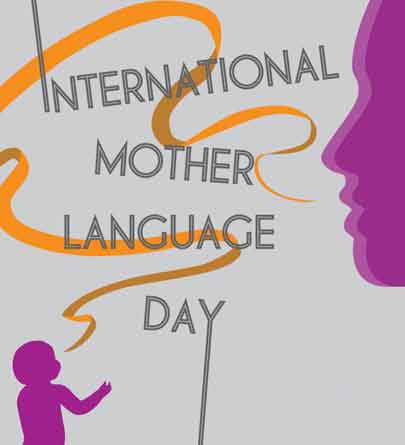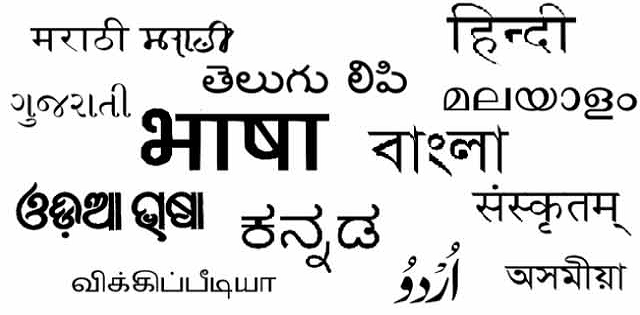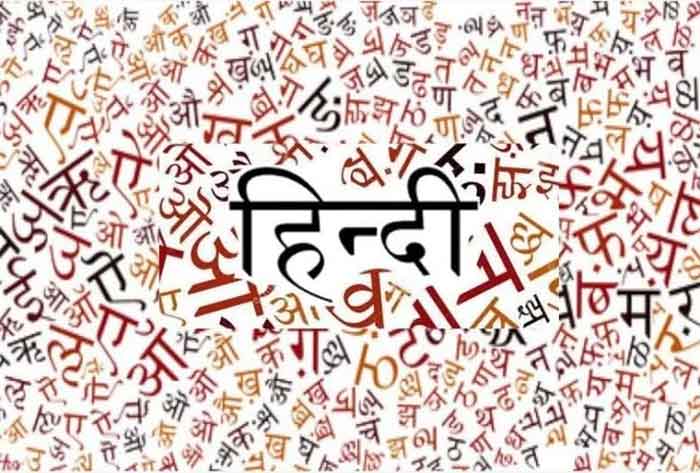
On the eve of February 21, International Mother Language Day, the afternoon was sunny, windless and frozen. The sun came up after a two-day winter snow storm. The snow was melting and I bundled up and decided to walk along the trails in my neighborhood to get a few minutes of sun. Above me the sunlight was pouring its yellow light through the naked branches of the trees without leaves. I was engrossed in thinking about my Amma (mother) since I observed the tenth year of her passing the day before. In the morning, I reread Amma’s beautifully composed and inspiring last letter that she had written to me five years before her death. Then it occurred to me that it has been more than ten years that I had written letters in Bangla to her. Up until the end, she had enjoyed reading letters that came from her probashi children who were spread across different continents. With many thoughts floating around in my head my mind shifted to thinking about how one’s language is one’s identity. I recalled one particular passage that I had read in The Shelter of the World, a fiction piece by Salman Rushdie published in the New Yorker magazine a few years back. In the story, a great Jesuit linguist comes to Mughal Emperor Akbar’s court and challenges Akbar the Great to discover his native tongue. He was speaking in Portuguese. While the monarch of the world was trying to solve the puzzle, his first minister Birbal, one of his navaratnas, goes behind the priest, and kicks him hard on his backside. The priest cries out in Italian. “You observe Jahanpanah,” said Birbal, “that when it comes to unleash a few insults, a man will always choose his mother tongue.”
In Bangladesh, Ekushey February (February 21) is observed as Shaheed Dibosh (Martyr’s Day). In 1999, UNESCO declared 21 February as the International Mother Language Day and it was first observed on February 21, 2000 to promote awareness of language and cultural diversity around the world. Throughout the day people go to Shaheed Minar (Martyrs Monument) to pay tribute to the martyrs of the 1952 Language Movement. Recently, I stumbled upon an old two taka note that I have been saving since 1993. Shaheed Minar is imprinted on that note. The deaths of our students were commemorated by the stark Shaheed Minar; each pillar represents the life of a shaheed student. Right before dawn a very familiar tradition on Ekushey February is when thousands of barefoot people march, by carrying wreaths and garlands of marigolds and krishnachura. They lay the wreaths on the marble stone minars built 14 feet high above the ground, and climb up the wide stairs singing “Amar bhaiiyer rakte rangano Ekushey February/Ami ki bhulite pari….(“My Brothers’ Blood Splattered 21 February/Can I forget the twenty-first of February…”).
The theme of 2021 International Mother Language Day is, “Fostering multilingualism for inclusion in education and society.” This year’s observance is “a call on policymakers, educators and teachers, parents, and families to scale up their commitment to multilingual education, and inclusion in education to advance education recovery in the context of COVID-19.” This year celebrations on the 21 will be muted because of Bangladesh’s Covid situation. As language is a marker of one’s identity, UNESCO promotes the using of one’s first language must begin from the early days of childhood and education as the basis for learning. That is how we introduce ourselves to the world. Our mother tongue/first language enables us to stay connected to deep traditions in choosing a life to be lived in the world. We are who we are because of our first language – through it we see ourselves, we develop our psyche, emotions and thoughts.
My mother tongue Bangla language came under vehement attacks after the Partition of All India in 1947. Central Pakistan’s leader Mohammad Ali Jinnah visited East Bengal only once in 1948 and pronounced, during a lecture in Dacca University’s Curzon Hall, that “Urdu and Urdu only will be the only State language of Pakistan.” Students sitting at the back of the room cried out “No, No, No.” In Pakistan’s east wing (then known as East Pakistan), Bangla was the only spoken language, whereas Urdu was spoken by 12-15 percent of the entire population. [“Out of six crores and ninety lakhs (69 million) inhabiting this State, 4 crores and 40 lakhs (44 million) of people speak the Bengali language” – as mentioned by Dhirendranath Datta in his speech of February 25, 1948 to the Pakistan Constituent Assembly in Karachi, presided over by Mohammad Ali Jinnah, which was the first formal articulation of the demand for Bengali to be made one of the state languages of Pakistan.] People in the East had no understanding of this alien tongue and naturally would not tolerate such an impossible proposition. From 1950-52, the educated middle class of East Bengal underwent what is referred to as the “language movement”. The Bangla language survived through the bloodshed of Dhaka University and Medical College students in 1952, when the Muslim League establishment’s Prime Minister Khaza Nazimuddin (a supposed Bangalee himself) declared what Mr. Jinnah originally proposed, that Urdu only will be the State language of Pakistan.
It was the Bangla month of Falgun (The arrival of spring). The student leaders of Dhaka University, on behalf of their teachers, took the lead in opposing the ridiculous notion by demanding that Bangla should be our official language. They, united, stood against the tyranny of the Muslim League government. Chaired by Maulana Bhashani, the All-Party Central Language Action Committee was formed. An overwhelming numbers of students converged upon the university campus. In a meeting at Aamtala (under the mango tree), the student leaders called the central Pakistan’s decision to establish Urdu as the only official State language an overt assault upon Bengali culture and heritage.
On February 21st in 1952, the student leaders decided to organize a peaceful rally. The fearless students broke the curfew imposed by the government, violating Emergency Act 144. Then, Chief Minister Nurul Amin (another Bangalee) ordered his security forces to open fire on unarmed students as they were trying to enter the Assembly building to make their demands heard, all the while chanting Rashtrobhasha Bangla Chai. Dhaka City’s earth was bloodied by the blood of twelve students, and amongst their names: Salam, Zabbar, Barkat, Riafique, Motiur, Shafiq, Wahidullah, Shafiur, ten-year old Awal and an unidentified rickshaw puller. They gave their lives to preserve Bangla language in its rightful place. Nurul Amin was advised to go and visit the other wounded students in the hospital, and he refused. Central Pakistan’s leaders tried to dismiss such a horrific incident, as they often did, by labeling it a “local matter.”
Learning from the lessons of that dreadful February day in 1952, we as Bangalees came to assert our national identity. Our students gave their lives to make sure that the future generations do take pride in our language and keep the national sentiment alive as Bengalis. The students lost lives for the future generation to sing with delight the iconic Atul Prasad song: Moder gorob, moder aasha/A’mori Bangla bhasha.
Bangla language has become a symbol of our collective national identity. Communication through Bangla has facilitated our group identity and Bangladesh, a nation, as a whole. It is no wonder why so many poets and writers choose to write in their mother tongue. They produce their best work in their own language. Our motherland and our Bangla language are essential to epitomize our lives – no matter where in the world we live. It is the only language which gives us proper identity. Without that we often feel like a wingless bird as Michael Madhusudan Dutta perhaps must have felt while composing his earlier sonnets in English as he was greatly influenced by Lord Byron, a British romantic poet. In a monolingual country like Bangladesh, we must recognize our uniqueness through our Bangla language, the main source of our pride and, arguably, the very root of our collective spirit.
One’s language is one’s distinctiveness and revoking the right to talk in one’s language in an official capacity can be seen as a challenge to one’s very existence, similar to instructing a person that she cannot breathe through her nose. What choice is left, at that point, but to fight back? Ever since independence from the British Raj in 1947, East Pakistan has historically bent to the whims of West Pakistan; their division had been designed to encourage this. However, we Bengalis did not take the assault on our language lying down. We fought tooth and nail until 1971. With the birth of our nation, a separate Bangladesh, our new found freedom ensured us Bangalees that we are full citizens, and that we are free of any official threat of the government, whether arbitrary demands over official language, or over the rights of persons.
I am pondering why, after so many struggles and bloodshed, the Bangla language is becoming a secondary language in some big city schools in Bangladesh. In a lot of the secondary and higher secondary schools, English is the only medium of instruction. Students are discouraged against speaking Bengali with their peers. I remember this practice from my school days. Now it has gotten worse. Our young generation often speaks in English. Television and other cultural programs that I sometimes watch on YouTube have become a peculiar hybrid of English and Bangla. There are so many English words that are slipped in during a conversation that the language comes across as a novueau hybrid show of mix and match world culture. I often come away with a clear impression that both the hosts and their guests on such programs are embarrassed to speak in Bangla. A few months ago, I was talking to an old Holy Cross Girls’ School and College friend on the phone. (She had moved back to Dhaka from Edinburgh as she was feeling too nostalgic). I realized that she was mostly speaking in English while chatting with me. When I pointed that out, she told me that even after living in Dhaka for seven years, she finds it is easier to speak in English than Bangla. This was a friend who read Robi Thakur’s Shesher Kobita (The Last Poem). During college, her life was greatly influenced by the Last Poem. Like Jibananda Das scholar Clinton B. Seely, my friend could parse the post-modern characteristics of complicated and controversial Das poems. Now all that is gone.
I take equal responsibility here for not truly keeping up with the Bangla language. Jane Austen, Charles Dickens and Ernest Hemingway were my constant companions during my formative years. The reality now is: After living in the states for ages, English, for me, has become a way of daily life. In the mailbox, when two books arrive on the same day, one being Kazuo Ishiguro’s latest Klara and the Sun and the other Buddhadev Guha’s Charumoti, I tend go for Ishiguro first. This is just a reflexive thing, inadvertent. With my only child, I typically try speaking in Banglish (mixing of Bangla-English), a spoken variety of Bangla mostly used by expat parents. At times speaking with her seems like a war between two languages as they compete for dominance. Then I end up speaking only in English because she is much more comfortable in speaking in English than Bangla as it remains a leading force in her life. Furthermore, such practices are not shocking or confusing anymore as more and more parents do not feel compelled to pass down their native language to their children who are growing outside of Bangladesh.
A line from William Shakespeare just popped into my head. “For all the water in the ocean cannot turn the swan’s black legs to white.” I acknowledge, however, that I am in my full element when I write in Bangla and read Bangla. Last month, I read a short story titled Allen Shahiber Chokh by celebrated Bangladeshi writer Syed Manzurul Islam in an old Eid issue of Jugantaar. It took me back to my roots, like riding an old bicycle on an open country road. Acclaimed poet Shamsur Rahman speaks to me like no poet has, particularly his poem Shadinota Tumi (Freedom, You). In solitary moments I tap my feet to the song of popular playback singer Sabina Yasmin that plays in my Bose sound system; O amar ei Bangla bhasha/Ei amar dukh bholano buk jurano/Lokkho moner lokhho aasha…Ei bhashatei shopno dekhi….Ei bhashatei maake daaki/Janai praner bhalobasha…Today the song in my first language asserts itself more powerfully than ever before. As I am preparing to watch the 2019 Bangla film Fagun Hawai (In Spring Breeze) about the 1952 Language Movement, the lyrics to the song wrap around me like a familiar Bangladeshi Nakshi Kantha (embroidered quilt) on a blustery winter night.
Zeenat Khan writes from Maryland, USA
GET COUNTERCURRENTS DAILY NEWSLETTER STRAIGHT TO YOUR INBOX












































